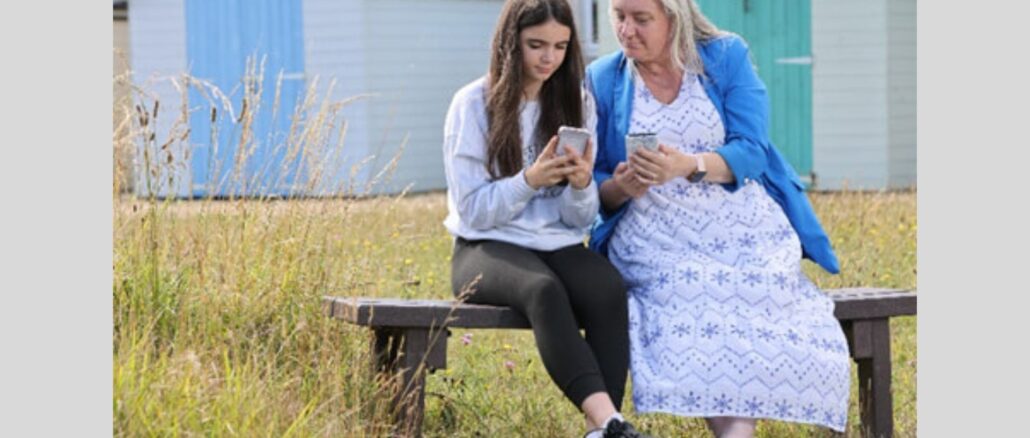
77% of Australian parents think social media puts their children under too much pressure, 74% say it’s not good for their child’s mental health and 54% want more support to help them manage their child’s screen time.
10,000 Parents surveyed around the globe as part of “The Better Phone Project” believe they should have waited longer before giving a smartphone to their child, is a source of regular arguments and has changed their child’s personality, reducing parents to tears.
Sydney Australia, 24th July 2024 – Thousands of parents across the globe have revealed they regret handing over a smartphone to their children. New research commissioned exclusively by tech innovator HMD (Human Mobile Devices) has found 11 is the average age when a parent hands over a smartphone to their child for the first time – but many confessed they wished they had waited longer.
The worldwide survey of 10,000 parents from across Australia, the UK, US, India and Germany has found more than half of those questioned said they regret exposing their child to a smartphone at such a young age. A third of those who responded cited the claimed negative effects of the device and changes in personality as the key reasons for this.
Concerns have been raised consistently about the impact social media apps, which often go hand-in-hand with smartphones, have on children.
A staggering 70% of parents questioned admitted their smartphone-free childhood meant they engaged more with their family – however, it is quality time their children don’t experience: 55% say their child’s phone use is a source of big arguments and a third have cried over their child’s phone obsession.
With more than half of parents agreeing smartphones can have a positive impact on their children and benefit them educationally – including allowing them to keep in touch with friends – parents clearly face a dilemma.
HMD is now striving to understand these challenges as it looks to offer a suite of new and innovative solutions which could work for parents, their children and anyone who is looking for credible alternatives to a smartphone.
The digital detox space is one HMD is familiar with having spearheaded the dumbphone trend by reimagining feature phone classics for the modern consumer seeking to limit their screen time and social media use.
Key Australian Findings:
– 77% of Australian parents think social media puts their children under too much pressure and is not good for their mental health (74%).
– 80% of Australian parents would like to see their school educate children on the dangers of social media, while a majority call for schools to ban phones.
– Smartphone use is a land of confusion for parents: 54% want more guidance and support to help them manage their child’s screen time and over 50% want the government to provide that guidance.
– 80% of Australian parents fear smartphones expose their children to stranger danger, with more than half admitting they don’t know what their children get up to when using their phones.
– Two-thirds of Australian parents say they would like a “child-friendly” phone as they look for solutions to manage mobile phone usage.
Further Global Findings:
– 64% of parents questioned said smartphone use negatively impacts their child’s sleep
– 61% think it reduces the amount of physical activity they undertake
– More than half (54%) are worried that it will reduce the amount of time they spend socialising with friends.
– 75% of parents fearing smartphones expose their children to internet dangers, with more than half admitting they don’t know what their children get up to when using their phones.
– Almost half of parents believe mobile phone use has changed their child’s personality
– A third claim their child has body image issues due to their phones.
– 38% of parents feel there are ‘no solutions’.
HMD is also keen to work with anyone who is interested in this subject and would like to be part of the journey to create change and new solutions. This includes Generation Z, influencers, policymakers, campaigners and support groups. They can sign-up to be involved at https://www.hmd.com/en_int/better-phone-project.
Lars Silberbauer, CMO of HMD, said: “The Better Phone Project is a journey to discovering a variety of solutions that tackle digital overload, providing choice and balance. Our goal is to collaborate with parents and experts to develop solutions that truly meet people’s needs, driving innovation in this space.”
Brenden Folitarik, GM Australia and Oceania, HMD, said: “It’s clear that Australian parents are struggling to find the balance between giving their children the benefit and freedom of connectivity while also teaching them about the responsible use of technology. This research is the first of an ongoing commitment from HMD to stay close to our consumers and be part of the solution.”
Joe Ryrie Co-founder of Smartphone Free Childhood said: “We’re delighted that HMD is committed to addressing the glaring gap in the market for child-friendly phones through this project. Their research into children and smartphones is yet more evidence of the impossible position that parents find themselves in today; We either give our children access to a device they might not be ready for, or choose not to and risk alienating them from their peers.
“It’s an issue that the 100,000+ parents who’ve joined our community since February are battling with on a daily basis, and we know that solving it requires a collaborative effort between parents, children, government and tech companies.
“Parents in our community are crying out for a phone which is desirable to children but isn’t designed to steal their attention. So we’re very excited about collaborating with HMD to help define what a modern child-friendly phone should be.”
SheSociety is a site for the women of Australia to share our stories, our experiences, shared learnings and opportunities to connect.



Leave a Reply